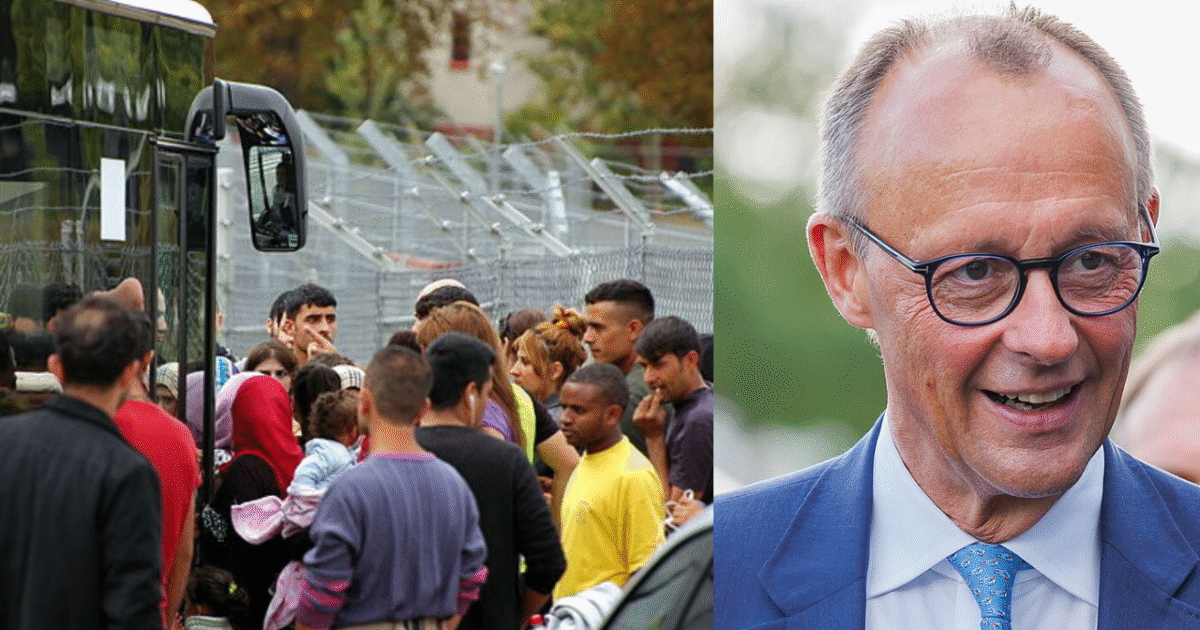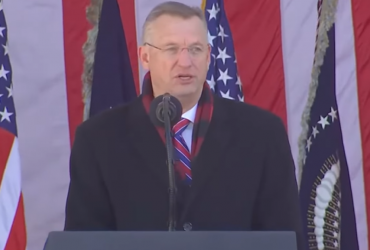German Chancellor Friedrich Merz moves to tighten refugee policy as camps across Germany remain overcrowded. (wikimedia)
Germany’s Chancellor Friedrich Merz has announced that his government will begin sending Syrian refugees back home, declaring that Syria’s civil war has ended and that there are “no longer grounds for asylum.”
Under pressure from the far-right Alternative for Germany (AfD), Merz is now adopting a tougher stance on immigration—one that bears remarkable similarity to the policies already in place under President Donald Trump.
Roughly one million Syrians live in Germany today, most of whom arrived after former Chancellor Angela Merkel’s 2015 decision to open Germany’s borders.
That policy changed Europe forever. It brought a wave of migration that overburdened welfare programs, strained hospitals and schools, and helped fuel the rise of the AfD.
Now, Merz is trying to undo Merkel’s legacy by working with Syria’s new government to return refugees—starting with those convicted of crimes.
This shift mirrors what the Trump administration has already done in the United States.
Since returning to office, President Trump has expanded border wall construction and signed new asylum agreements with Latin American nations to prevent the same border collapse Europe suffered a decade ago.
Illegal crossings have dropped to 0 in 2025, proving that strict enforcement and diplomacy—not open borders—restore stability.
Germany’s decision shows how Trump’s worldview is reshaping global policy.
Even in Europe, where leaders once mocked his approach, governments are recognizing that mass migration erodes national identity and drains public resources.
The same European elites who once lectured Washington on “humanitarian responsibility” are now admitting Trump was right: a nation that cannot control its borders cannot control its future.
For Germany, the political reality is clear. Polls show the AfD leading in parts of eastern Germany, driven by voters tired of paying for asylum programs that were never meant to be permanent.
Many residents in regions like Saxony and Thuringia feel that the government’s focus on resettling refugees has come at the expense of domestic needs—especially as energy prices, housing shortages, and inflation strain local budgets.
This growing resentment reflects deeper frustrations with Berlin’s immigration policies, which most say have prioritized political image over economic stability and border security.
For many voters, the AfD’s rise signals a demand for tighter migration controls and stronger national sovereignty.
Merz’s deportation plan is not a humanitarian betrayal—it is an overdue correction.
Europe’s open-border era is collapsing under its own weight, and Germany’s move marks the beginning of a continental shift toward sovereignty and law.
President Trump’s America has led that movement from the start.
While European leaders are only beginning to repair their migration crises, Trump has already proven that compassion does not require chaos.
The world is catching up to his vision—one built on security, responsibility, and the unshakable principle that borders matter.
The post Germany Admits Trump Was Right on Borders After Taking in One Million Syrian Refugees appeared first on The Gateway Pundit.











